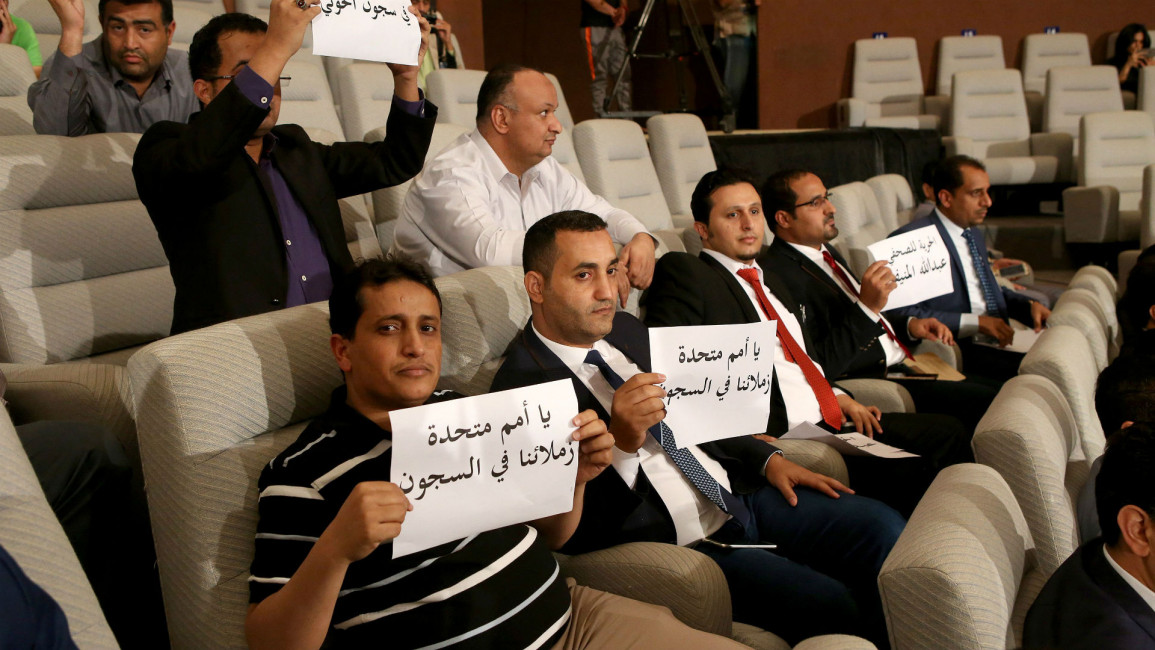Detained Yemeni journalists go on hunger strike
A group of detained Yemeni journalists have gone on hunger strike to protest at the poor treatment they have received by their Houthi captors.
Ten jounalists have been detained in Sanaa's al-Habra prison for more than a year. They launched the hunger strike early in May and vowed to continue their protest until all their demands are met, their families have said.
The protest was supported by the International Federation of Journalists (IFJ), the world's largest organisation for media workers. They have called for their immediate release and condemned the continuous harassment of journalists in Yemen.
"There is no word to describe the level of fear and atrocities our colleagues in Yemen have to live with," IFJ president, Jim Boumelha said.
"Our jailed colleagues must be set free immediately. Warring parties in Yemen must stop using journalists as weapons in their deadly conflict. Let them report freely and inform the Yemeni people."
Several cases of torture were documented by the group's Yemen affiliate, Yemeni Journalists Syndicate.
"[We urge] all human rights and international organisations to show their solidarity with the detained journalists and to work for their release and to provide them protection."
Journalists working across the country have come under a strict crackdown since the capital fell to the Houthis in September 2014.
On Tuesday, Yemen's government and Houthi rebels agreed to free half of the prisoners and detainees held by both sides, in the first breakthrough in peace talks that began last month.
"They agreed in principle to explore a proposal to release 50 percent of all detainees held by each side ahead of the holy month of Ramadan [month of fasting] and eventually release all detainees," said UN Yemen envoy, Ismail Ould Cheikh Ahmed.
The rebels overran large parts of the cities, including government buildings and public centres in 2014.
It led to a Saudi-organised military coalition intervening in Yemen in March 2015, with a campaign launched to defeat the Houthis and reinstate the internationally-recognised Yemeni government.



